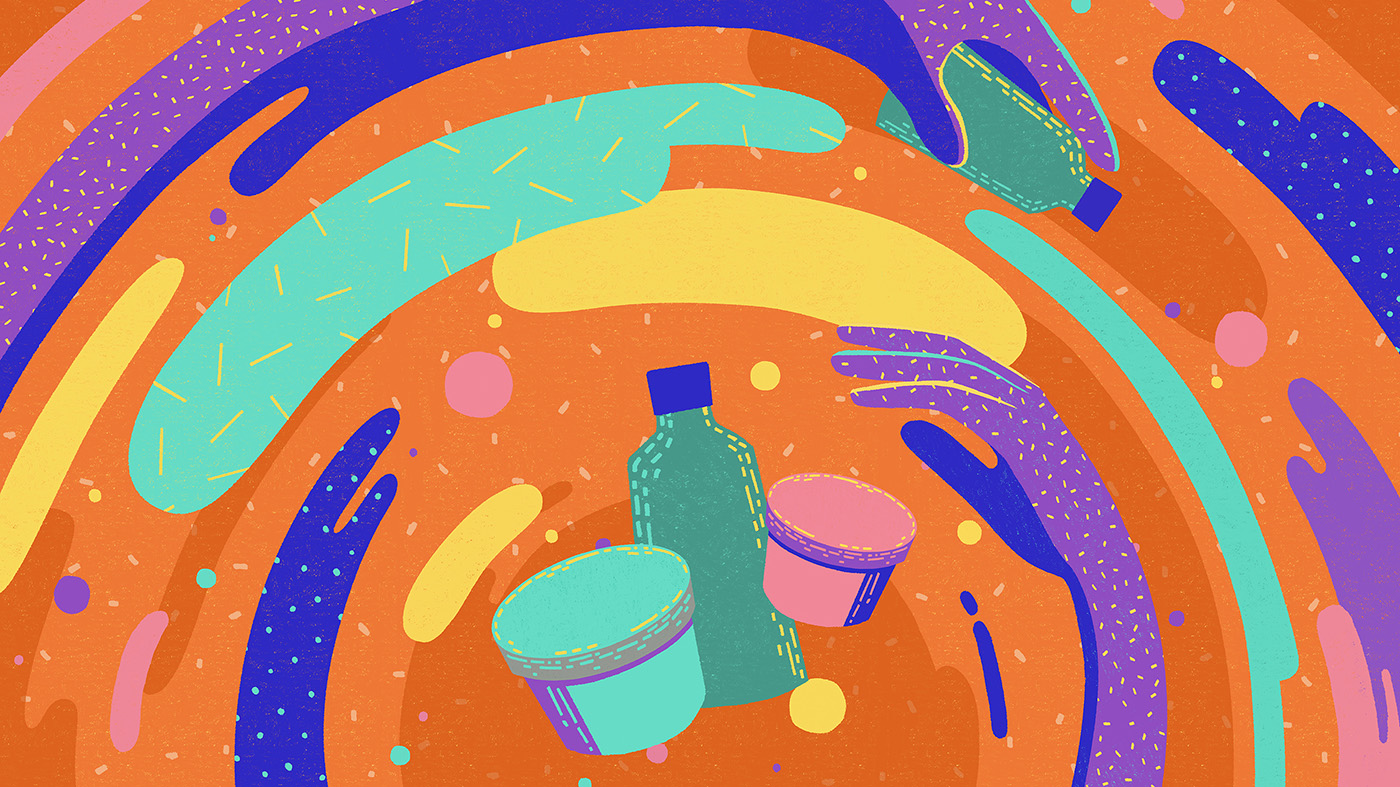Indians have always been perceived to show up late at a party. By that analogy, we are referencing prominent global trends that have taken their sweet time to reach the Indian audience. Natural products as part of the personal care industry are one such party. Not only have we now arrived, but we are also making it bigger than ever.
Such natural products include skincare, makeup, men’s grooming, fragrances, hair care, bath, and oral care (1).
Such swift in the market also indicates the changes in consumer preferences over the past few years. With the shift in the market, their preferences are also changing rapidly.
Today, shoppers are looking for purchases that fit their requirements and lifestyle choices. Indian customers have also become very picky about their products while stressing about the environmentally friendly manufacturing process, cruelty-free products, and toxic-free natural ingredients (2).
“A decade ago, consumers in India were led by fancy names and packaging. However, today, they are more informed about the harmful effects of chemicals present in almost all personal care brands. Thanks to easy access to information on the internet, people educate themselves about several brands in the market and what will work best for them. Millennials, all across the country, are becoming increasingly conscious and are looking for safe and natural alternatives to replace the existing products offered by giant multinationals.”
– Ghazal Alagh, Co-founder of Mamaearth (3).
Notably, Mamaearth offers clean, natural, vegan, and toxin-free product solutions.
According to a recent survey by Euromonitor (4), 67% of Indian consumers look at themselves as environmentally conscious, and most prefer recyclable and natural products. Moreover, Genz and Millenials have now turned into the key factors driving the industry and influencing household branch buying decisions.
Several startups in India, such as Super Smelly, Mamaearth, and Auravedic, understand the buzz and try to occupy the prime space in the minds of their target audience. They are bringing in toxin-free, organic, and natural products in the Indian mainstream market.
India Going Local
The growing Indian beauty and personal care market is stormed by local brands that promise to pamper Indian skin with natural and organic products (5).
- There is a significant demand for products that suit Indian skin types and hair. It is a largely unfulfilled demand by international brands. Offering perfect opportunities for home-grown companies.
- There is also a growing moment from chemicals to natural. These companies are including India’s century-old ayurvedic ingredients and other organic remedies for their formulations.
Long before the present government called ‘vocal for local’ for Indian businesses last year, India’s beauty and personal care industry witnessed a steady rise in consumer demand. Notably, the Indian beauty and cosmetic industry are among the fastest-growing market globally, according to Shennai Pushkaraj, a member of the CII Retail Committee and Lakme CEO (6).
Apart from products made specifically for Indian skin and hair types with natural ingredients, it also helps that the customized local products are more pocket-friendly than the international brands.
For instance, a face wash from the latter can set one back by at least 900 to 1200 INR for 125 ml. On the other hand, a 50 ml product from one of the Indian labels comes for about 250 to 300 INR.
When it comes to local and personalized products, there is also a greater value for customer care. If someone has queries about a product’s ingredients or other aspects, one can go to the company’s Instagram page and get them clarified in a single day.
However, with international brands, it is not possible. Even people working at the counters are no experts. They are only there to sell products, and it is not enough for Millenials and Genz.
In the last several years, there has been a shift in the consumer base, thanks to increasing awareness, incomes, accessibility, and changing lifestyle.
Besides the basic needs such as nail polish, kajal, and lipstick, there is a demand for skin care and personal care products that treat target areas and specific problems, such as lip care, dark circles, stretch marks, hygiene wash, and more.
It is also worth highlighting that the buyers for these new-age Indian labels are mostly young, urban dwellers, particularly women in the age group between 18 to 35, who are financially independent.
Indian beauty brands, whether they are big or small, have flourished in the past five years, and the entrepreneurial spirit is alive and propelling bodies well for the Indian economy.
“India’s beauty brands keep on harnessing the power of natural blends and organic ingredients to come up with formulations and products that look good and, more essentially, feel great. Not only can they rival their international counterparts on quality and beauty benefits, but they’re also much more affordable, accessible, and beneficial for the Indian economy.”
– Pushkaraj.
The Data
According to the available latest data, there has been a significant jump in India’s market size of beauty products. There are estimates that the Indian BPC, Beauty and Personal Care market would reach 23 billion USD by 2022. It is growing at about 9% CAGR, which is more than 3% from previous estimates of 6% in 2018.
Even though the market is broadly categorized into makeup, skincare, men’s grooming, fragrances, hair care, bath, and oral care, not every category observes the same growth.
Skincare, makeup, men’s grooming, and the hair care segments will witness the maximum expansion and encompass more than 50% of this growing market share. Notably, skincare and makeup are leading the race and accumulating the majority of shares.
According to estimates, the skincare cosmetic industry in the international market would also reach more than 45 billion USD by 2023. The industry is growing at a 6% CAGR, within which the premium segment, especially in nations like India, is growing at a remarkable 15% CAGR, which is the highest.
Some of the leading factors responsible for the changing market include an upper shift in the social-economic status of the Indian population. It has led to more spending money, consumerism, and aspirational demand, leading to increased media content availability and increased wallet output (7).
Highlights
According to data accessed from Statista (8) for Personal Care, the digital market outlook in India:
- There are projections that the revenue in the personal care industry would reach 5,134 million USD in 2021
- There are expectations that the revenue would show an annual growth rate between 2021-2025 at a 9.9% CAGR.
- Consequently, there are projections that the market value would reach 7,493 million USD by 2025.
- There are expectations that in 2021, user penetration would be 13.7% 2021, and it would hit 24% by 2025.
- There are expectations that the average revenue per user, ARPU, would amount to 26.97 USD.
- In the personal care segment, online sales would generate about 88% of total market revenue by 2023.
Revenue
There are projections that the revenue in the personal care segment would reach 5,134 million USD in 2021.

Users
According to market expectations, the number of users would amount to at least 374 million by 2025 in the personal care segment.


Average Revenue Per User
There are expectations that the average revenue per user, ARPU, would amount to 26.97 USD.

The Impact of Digitalization and COVID-19 Pandemic
Today is an exciting time for every industry, especially for beauty and personal care, with the digital revolution, the rise of e-commerce, home delivery, and digital marketing exponential growth amid the coronavirus pandemic.
It is also worth highlighting that various D2C, direct to consumer Indie beauty brands, small independent beauty startups have made a sudden influx during the lockdown months.
With high internet and smartphone penetration, economies of scale have become easier to reach, market barriers are reduced, and data is also supporting highly efficient marketing spends.
There have been an explosion in the awareness of advanced beauty and personal care products through popular social media platforms like Instagram. Several beauty commerce platforms, both offline and online, have risen to meet the consequent demand and fight for the lead among the country’s awareness.
These firms drive their unique, natural, and organic products with enhanced content delivery, customer education of the product offering, and other benefits making big in India. Same companies, identifying the potential market, are now making a swift towards offline space. Translating their online product success into tangible experiences via offline retail, void ecommerce giants have often encountered.
Indicating that even though during the initial days of the pandemic and the resultant lockdown, these startups were hit by manufacturing slow down, however, they seem to have been bounced back real quick. Moreover, the demand for personal care products has also increased past lockdown.
“In May, our team achieved the same sales number as in January and February in 2020. June witnessed growth on all channels, e-commerce, brand’s website, and offline market compared to pre-COVID days.”
– Ghazal Alagh.
Even though businesses prioritize survival, they will find new ways for brand building in the future. The coronavirus pandemic has made brands of all sizes rethink the strategies they implement for their business’s smooth operations.
For instance, Super Smelly (9) shifted its supplies towards multiple delivery partners with reduced costs and timely delivery, resulting in an effective supply chain. The firm also implemented effective workforce management to handle the operations and logistics while maintaining social distancing in sanitized work areas (10).
Innovation
The beauty and personal care startups are driven by innovation and utilization of the best science and Ayurveda to meet aspirational, young, and conscious Indian consumers’ care requirements. These startups are constantly bringing the spirit of innovation, consumer feedback, and in-depth research into every single product.
The founder of Auravedic, Amrita Bhatia (11), stated that Auravedic had been a pioneer in introducing face oils for all skin types and concerns, ranging from pigmentation to dark spots, fine lines, and dark circles.
“We embarked on our journey with one of the most innovative products in the deodorant category. India’s first and only Australia certified spray deodorant. So far, Indian consumers have only seen safe ineffective deodorant formats. Even though they are safe, they are not suitable for India’s tropical climate. We have deodorant creams, roll-ons, and cream sticks but never a spray formulation, which is 100% toxin-free certified by SCA. Moreover, the product is naturally derived with skin superfoods like aloe vera, tea tree oil, and witch hazel.”
– Dipali Mathur, CEO, and Co-founder of Super Smelly (12).
It is also worth highlighting that innovation has become an integral part of these brands. In the upcoming years, Indian beauty and personal care startups are also planning to launch new products, enter new categories, and use ingredients according to consumer feedback.
While talking further, Ghazal Alagh asserted that from the day Mamaearth incepted, they have been listening to their customers and offer products they were asking for. It has led the company to develop and roll out more than 100 products in under three years.
Notably, some of the most innovative products developed by Mamaearth in the baby care arena include India’s first Bamboo based baby wipes, Easy tummy roll with Hing and Fennel for Digestion relief Colic, and 100% natural plant-based toothpaste for children between 0-10 years.
After the startup diversified into the skin and hair care space, the Mamaearth team had noticed that their consumers use onion juice as the ultimate hair loss remedy. And it led them to launch their onion range of hair care products and witnessed phenomenal results.
The startup has also recently launched the BhringAmla range of hair care products that include oil made with 4,000 years old Kshirpak Proces. The product range includes shampoo, conditioner, hair oil, and hair mask made via an Ayurvedic blend of Amla, Bhringraj, and many other herbs.
Meanwhile, Super Smelly is using Semi-AI, artificial intelligence to marry the brand with technology. With the process, the team interacts with their customers at every stage, from welcome to exit. The team is also educating them about the brand and products through the technology. At each stage, they also extend exclusive offers to customers. Notably, after applying Semi-AI, Super Smelly has witnessed a 30% increase in their daily sales (13).
Target Advertising
Indian beauty and personal grooming startups are running their advertising campaigns around real people. They focus on their problems to engage with consumers who develop a strong connection with these brands.
For instance, Mamaearth is a digital-first brand and target the millennial generation. Their advertising campaigns are solely focused on digital content. They want their target audience to read about their products’ problems and why these products are best in the market.
Mamaearth works with bloggers and social media influencers to reach their target audience via word-of-mouth.
On the other hand, Super Smelly adjust its advertising spend in response to a shift in consumer preferences. The company has run radio and influencer campaigns to increase brand awareness and mark consumer minds (14).
The Future
There is no denying that Indian beauty and personal care brands plan to disrupt the market by innovating at their pace. These companies are looking forward to introducing environmentally friendly, natural, and functional Ayurvedic products that appeal to Indian consumer demand for healthy, mindful, and individually-focused products.
One can also plan to find what value means for their consumers as they establish new purchasing routines. It needs going back to the drawing board and finding out what additional value one can offer across each of the four Ps – product, price, promotion, and place.
One of the main pillars for any brand’s growth is new product launches. These startups would need to keep innovating with new product ranges and categories.
Even during the COVID-19 crisis, these startups have managed to launch an extensive new range of beauty and personal care products (15).
Takeaways
Many of today’s customers are asking for greater transparency in the product they buy. It includes knowing where their product comes from and details about ingredients.
According to several reports, the ‘natural’ trends have become the most important trend in the Indian beauty and personal care industry.
Other traditional manufacturers of personal care products, still holding a dominant position in the Indian market, such as Unilever, Palmolive Co., and Proctor and Gamble co., have acquired startups and smaller companies to build their natural divisions to compete with growing niche startups and companies in the industry.
Nevertheless, India’s beauty segment has always been very interesting. And with increased activity and the shift in consumer demands have boosted sentiment among aspiring entrepreneurs and investors looking to venture into the industry.








